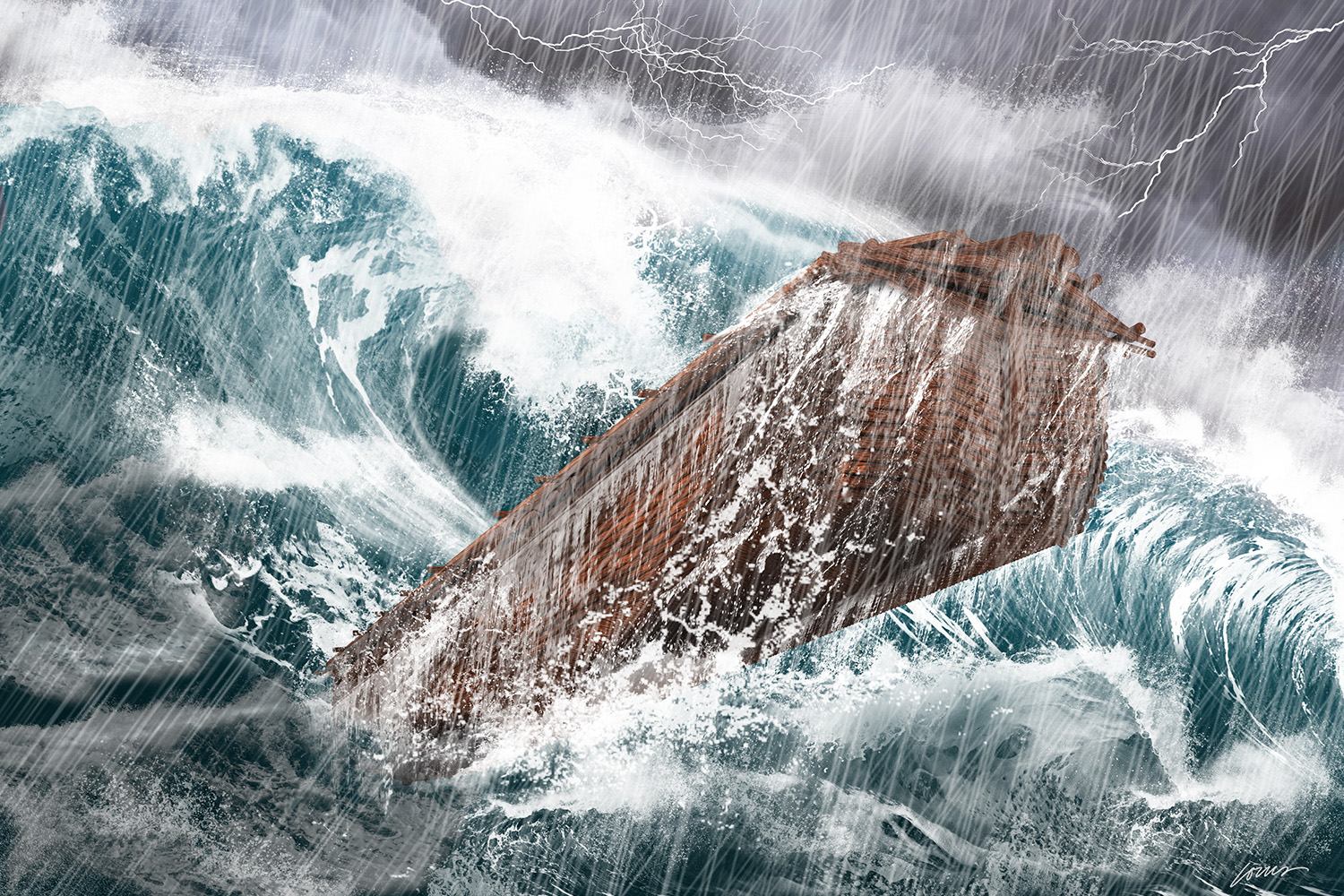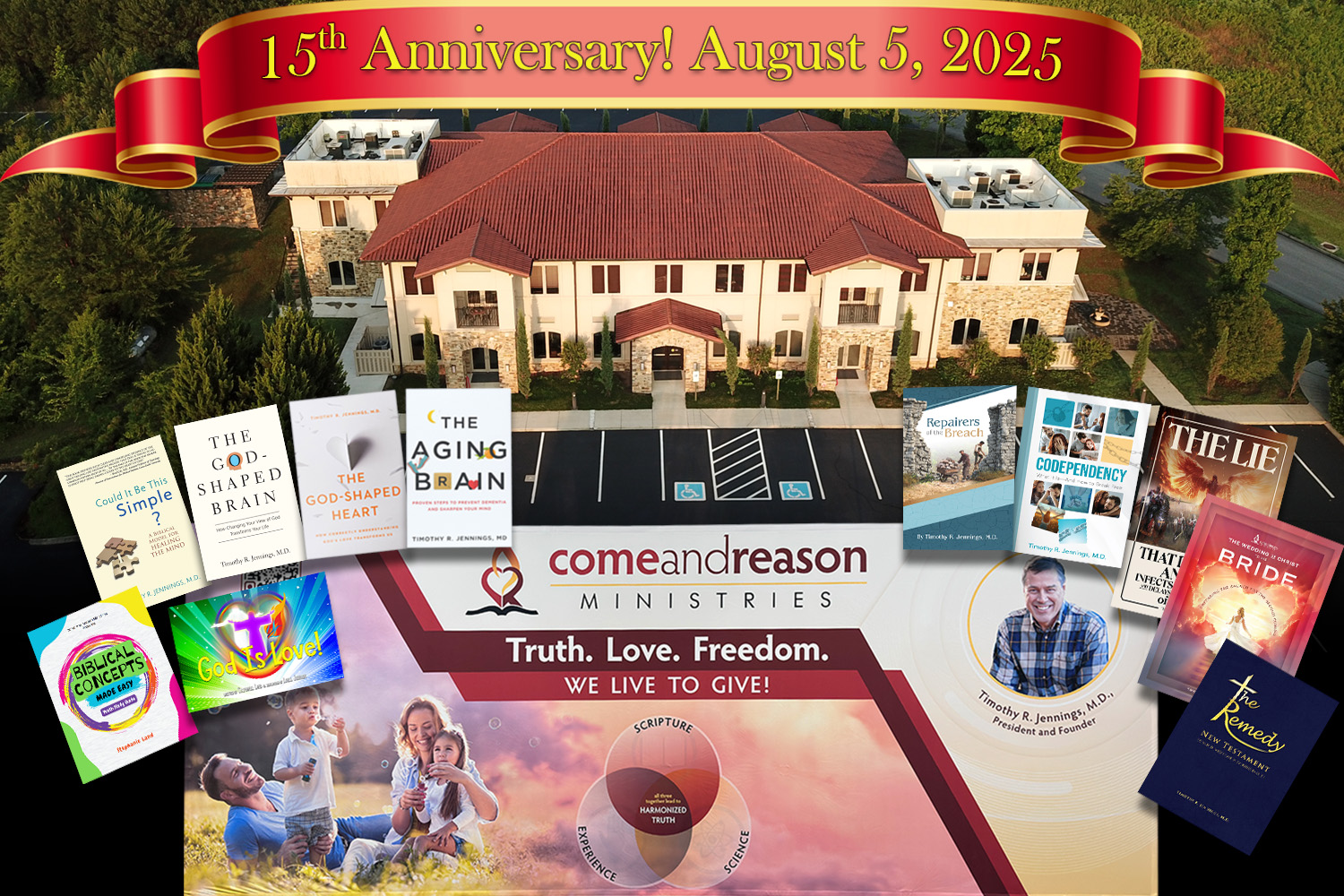In the aftermath of my recent blog,The Flood and the Question of Whether God Kills – Part 1, I received several emails voicing concern, objection, and disagreement. And to those who chose to email me to voice your objections: Thank you!
This is how we learn, and you have caused me to think things through again and re-examine the biblical evidence, and this process has triggered new insights that I had not considered before. Thus, this is a follow-up blog to my first one. If you havenŌĆÖt read that blog, please do; it lays the foundation for what follows.
One person emailed the following:
I have fully read your article three times in our group we use to share your materials and other materials from other proponents on God’s Character message.
Let’s reason together little by little base on your article on the Flood and see whether we can arrive at a common understanding or not.
First question on the flood and probably Sodom:
If God was merely putting people to sleep, *why did He make it so painful*, such as using flood to drown, fire to roast people alive, including kids? Couldn’t He have used a less painful means? Does God need to use violence and the most fearful events in the whole universe before He can put people to sleep?
Again, why was the flood worldwide and not limited to only the inhabitants of the then world? Why has the flood left huge devastations of our planet and destabilized our ecosystem if God had to merely put the humans to sleep?
The worldwide flood has caused a bad effect on our ecosystem adding up to the scorching sun and causing a lot of suffering and death. With the idea that God’s power is destructive has lead many people to believe that God is the source of death. Aren’t they right to conclude it in that way without the idea of the flood and its subsequent consequences on our ecosystem?
Such great questions! These kinds of questions give us the opportunity to re-examine, reflect, rethink, and reconsider our opinionsŌĆöand hopefully grow in our understanding of God and His protocols for life.
I would like to begin my answer by suggesting that the questioner introduced an assumption, a proposition, that doesnŌĆÖt appear to be accurate to the Bible account of Sodom and, therefore, leads to a wrong conclusion: that God made His interventions painful (by roasting people). Yet this simply is not how the story is described. Instead, it is described as a fire so intense that even the buildings were eradicatedŌĆömeaning it was a vaporization, instantaneous, of all matterŌĆöand not slowly ŌĆ£roastingŌĆØ people. Thus, it was painless. These people had no awareness that they were being vaporized. It would be like the experience of a person standing at the epicenter of a nuclear explosionŌĆötheyŌĆÖd feel no pain at all. So if we read this story as God inflicting slow torture or suffering, we introduce a falsehood and mispresent Him.
What about the flood? Drowning in those waters wasnŌĆÖt instantaneous, so didnŌĆÖt this cause suffering and didnŌĆÖt it affect the entire planet, its ecosystem, and all subsequent generations? Yes.
Why? The reason the flood was worldwide was because, according to Genesis 6, the problem was worldwide and, thus, the therapeutic interventions needed to be worldwide.
And what were those therapeutic interventionsŌĆöbesides keeping open the avenue for the Messiah?
┬Ā
First Therapeutic Reason for the Flood: Providing Every Opportunity for Repentance
DidnŌĆÖt God warn, through Noah, for 120 years of a coming flood, of their sinfulness, of their need to repent, of their need to turn to Him for salvation? How did they respond to the message of Noah? Ridicule and rejection. What would allowing the flood to occur over a period of time (rain, fountains of water breaking through, etc.) allow for? Would it allow for some people to reflect and to reconsider? Would the evidence of what was transpiring confirm to them that Noah was right? Would that give the people outside the ark the opportunity to repent? Whether they accept it or not isnŌĆÖt the question IŌĆÖm asking here; rather, IŌĆÖm saying that wouldnŌĆÖt a God of love give every opportunity for repentance even if that opportunity was physically painful?
Did the thief on the cross have many truths presented to him throughout his lifeŌĆöyet persistently rejected God, pursuing a sinful life until he ended up in a state of suffering leading toward death? Did that situation give him opportunity to reflect and repent, even though he was destined to die at that point?
Thus, the flood was brought not only to keep open the avenue for Messiah, but it also allowed those who refused to get on the ark one final opportunity for repentance and eternal salvation. Just like the thief, their earthly life was going to be over, but their eternal life didnŌĆÖt have to be.
┬Ā
Second Therapeutic Reason for the Flood: Putting Obstacles in the Way of Future Worldwide Apostasy
What were the factors, besides humans being sinful, that contributed to the entire world hardening against God so quickly after Eden? What happens to sinful people when everything is given to them and they donŌĆÖt have to work for anything? What happens over time to people who are self-indulgent and lead hedonistic lives? What happens if such people live hundreds of years? What influence would such people have on their children, grandchildren, great-grandchildren, and multiple generations down?
Would altering the environment to make it harder to survive be a punishment for sin or, rather, a therapeutic intervention that would help slow the corruption of human character? Have you ever heard that ŌĆ£idle hands are the devilŌĆÖs workshop?ŌĆØŌĆöi.e., useful labor is protective against temptation.
The Edenic-like conditions on the earth prior to the flood permitted more indulgence of the carnal nature and, thus, accelerated the corruption of human character. The changes to the earth by the flood made it harder to put food on the table and, thus, increased the need for useful labor, which also protected people from sinful indulgence.
Further, the changes to the earth resulted in shortening human life from about 900 years to 120 years, which also limited the pace of the spread of evil, as those who hardened their hearts against God could not corrupt as many generations with their influence. So, putting all these variables together, we see a beautiful God of love who acts in mercy and therapeutically to keep open the avenue for Messiah and slow the progress of the disease of sin.
The story of the flood serves as an excellent example of the difference between factsŌĆöflood, ecosystem changed, lives shortenedŌĆöand the interpretation of facts. Satan works to get us to misinterpret the facts in order to distort the character of God. When we return to design law and understand how reality works, we realize that God was not inflicting punishment but was acting therapeutically to heal and save.
If we donŌĆÖt understand the context of what is actually transpiring in the great controversy, the reality of humanity dying of a terminal condition, of God working to bring the Messiah to save, and Satan working to prevent that plan, then we will misunderstand what we read in the Bible.
Consider observing an ancient battlefield on which you see evil people with swords killing and maimingŌĆösometimes cutting off arms or legs. But on the battlefield, there are also medical personnel who appear to be doing the same thing. They are holding people down, people who are screaming because no anesthesia available, and cutting off their arms and legs (amputating to save the life) or cutting open their bellies (to heal the wounds inflicted). But as the observer, you perceive two groups of people using sharp instruments to cut off limbs and cut into people. You donŌĆÖt realize the two groups are working toward two different goals. You might wrongly conclude, ŌĆ£My doctor would never use such methods; it is evil.ŌĆØ
This is how I hear the argument of those who deny that God has ever used power to put people to sleep. It fails to incorporate what the action is intended to result inŌĆöi.e., the motiveŌĆöwhich is to heal and save the species.
God never compels, never coerces, and only uses the methods of truth, love, and liberty. But love does restrain evil in order to protect, and God has done this in many places throughout human history.
┬Ā









 using your credit or debit card (no PayPal account needed, unless you want to set up a monthly, recurring payment).
using your credit or debit card (no PayPal account needed, unless you want to set up a monthly, recurring payment). instead?
instead?